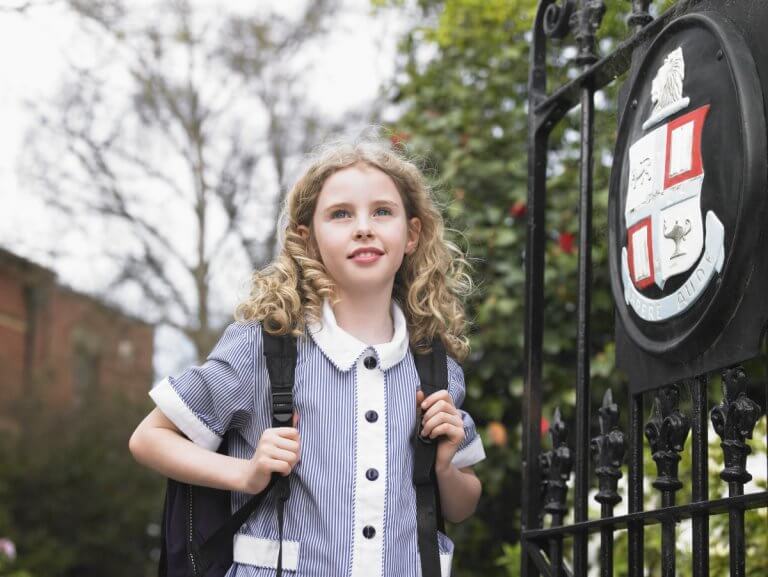
Are private schools better than government schools? Many assume they are the superior option over state or government schools, but that depends on what you expect your child to get out of education.
For example, The Guardian reported that students in private schools in Australia don’t necessarily perform better academically than those in government schools.
The National Assessment Program – Literacy and Numeracy (NAPLAN) achievement test scores “shows students at private schools are, on average, ahead of students at government schools in numeracy and literacy.”
However, the report noted that NAPLAN achievement scores at one point in time prove nothing about the standard of teaching in private schools compared to government schools. NAPLAN is an annual assessment for all students in Years 3, 5, 7 and 9 in Australia.
Meanwhile, the report added that the past three Pisa reports (OECD’s international problem-solving test for 15-year-olds, in 2015, 2012 and 2009) found little discernible difference between the achievement of private school students and government school students, factoring in both student and school-level socio-economic background.
University of Virginia researchers echo these findings. In a longitudinal study, they examined how enrollment in private schools between kindergarten and ninth grade was related to students’ academic, social, psychological and attainment outcomes at age 15.
“The private schools in the city, for children from rich families, have very good facilities. It does not seem right that it is so much harder for children in a government school to be educated.” Share her story to help #FightInequality and #BeatPoverty https://t.co/nI3g4wMBLq pic.twitter.com/uIhOtIk4oD
— Oxfam Ireland (@OxfamIreland) 22 January 2019
They found that children with “a history of enrollment in private schools performed better on nearly all outcomes assessed in adolescence”, but all the advantages of private education “were eliminated” when sociodemographic characteristics were factored in.
They also found “no evidence to suggest that low-income children or children enrolled in urban schools benefited more from private school enrollment”.
Australian think-tank Grattan Institute examined student progress in numeracy and literacy over time, rather than just achievement at one point in time, and found “only very modest differences in student growth among sectors.
“At primary school, between years three and five, students at independent schools make similar rates of progress as students at government schools, while students at Catholic schools make slightly less progress. At secondary school, between years seven and nine, independent schools do only very slightly better than government schools – less than one month of extra progress per year,” it said.
However, this analysis does not suggest that parents are wasting their money on private school fees.
The authors note that their analysis does not “examine other subject areas that may be of specific interest to students and parents” and “does not measure everything parents would be looking for their children to get from a school”.
The benefits

Private schools tend to have better resources than state schools. Source: Shutterstock
While some private schools may not always offer better academic outcomes for students, they do come with other benefits.
For example, findings from the UK’s Higher Education Policy Institute’s (HEPI) report (The Impact of Selective Secondary Education on Progression to Higher Education) suggests grammar schools improve the likelihood of students from the bottom two quintiles of social disadvantage, as well as for black and minority ethnic (BME) pupils to progress into highly-selective universities.
Highly-selective universities are strongly associated with progression to highly-skilled employment, higher earnings and access to the highest level of professional opportunities.
Meanwhile, some private schools also offer a wider range of subjects and challenging educational programmes, such as Advanced Placement courses or the International Baccalaureate programmes, which isn’t always offered in government schools.
This provides students with a platform to choose a curriculum that suits their learning needs and styles.
Private schools also tend to have better resources than state schools, such as indoor swimming pools and high-quality labs, meaning they can offer students a wider choice of extracurricular activities and grant access to a wider range of experiences. This enables them to learn and grow beyond the classroom.
It’s clear that there is no one-size fits all approach when it comes to choosing the best place to educate your child.
However, the wide availability of both government and private schools means parents can pick a school that suits their child, or one that offers something parents strongly value – such as a strong academic reputation or one that offers a healthy combination of academic excellence and extracurricular activities.
Liked this? Then you’ll love…
Born to be wild: Why outdoor activities are good for kids
UK grammar schools may help disadvantaged pupils enter top universities, says study







